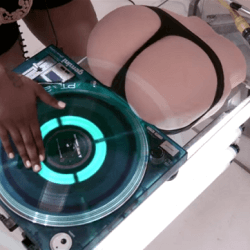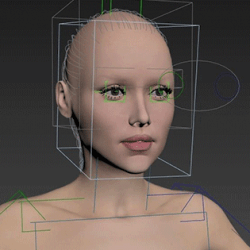4 Myths about People Who Are Sexually Attracted to Robots and Love Dolls
Unpacking the misconceptions about robosexuality.

The market for sex dolls is booming.
Seeing the growing demand for love dolls, along with our cultural fascination over sex robots, manufacturers and resellers are flocking to get a piece of the pie. Yet regardless of this clear consumer interest in sex dolls, there remains a stigma against people who buy them and find them sexually attractive.
To help combat stereotypes and false information, here we debunk four common myths about people whose erotic tastes involves sex dolls and robots.
1. Desire for synthetic lovers is unusual
The longing to design one’s ideal sex partner dates back to Ancient Greece and Ancient Rome with the story of Pygmalion. The sculptor carves an ivory statue to resemble his image of the perfect woman, and she later comes to life.
In the 17th century, Dutch sailors also crafted sex dolls out of cloth to keep them company on long voyages. This tidbit of history is why Japanese sellers refer to their love dolls as “Dutch wives.”
More recently, popular science-fiction novels and films explore humanity’s ongoing desire for sex robots. Ex Machina and both Blade Runner films are just a few more examples.
2. Only men are interested in sex robots and love dolls
That is sort of like saying ALL men are interested in sex robots and love dolls. But, of course, sexuality is more complex than that. According to sellers of love dolls and robots, men are more likely to buy them. However, straight couples also play with love dolls, which may be an exceptional way of exploring a threesome fantasy without jealousy.
A 2016-study also revealed that while men are more likely to say they would use a sex robot, one-third of women admitted they would as well.
3. People who use sex dolls can’t find human partners
Synthetic companions can certainly help ease loneliness. But just because someone plays with a love doll doesn’t mean they are unable to form human-human sexual relationships.
Sergio Santas, the creator of the animatronic sex doll Samantha, is an example of someone in a committed relationship who also gets intimate with synthetics.
When his company, Synthea Amateau, first made headlines in 2017, Santos made it clear he was a married man. However, his sex drive was much higher than his wife’s, and as a result, he said Samantha made his relationship better by offering a sexual outlet that didn’t involve an organic woman.
Other people who have gravitated toward love dolls have, in fact, previously been in relationships with human women. Some men admit they’ve enjoyed the companionship of love dolls following a tough breakup.
4. Attraction to robots isn’t a sexual identity
Folks who are interested in animatronic love dolls and who find the idea of sex robots appealing often identify as robosexuals. In particular, a robosexual is someone who is attracted to machines or artificial humans due to the fact that they are robots or created by humans.
That these synthetics look, talk, or move like robots is the turn-on.
Although long stigmatized, people whose primary sexual interests are intertwined with technology are becoming more accepted and less invisible. In 2018, academics Neil McCarthur and Markie Twist coined the term digisexual to name and more fully explain the sexual identity.
Perhaps most importantly, they wanted to help put a stop to ostracization and validate people who find technology integral to their sex lives.
Image sources: SexDollGenie.com
Leave a reply
You must be logged in to post a comment.

















